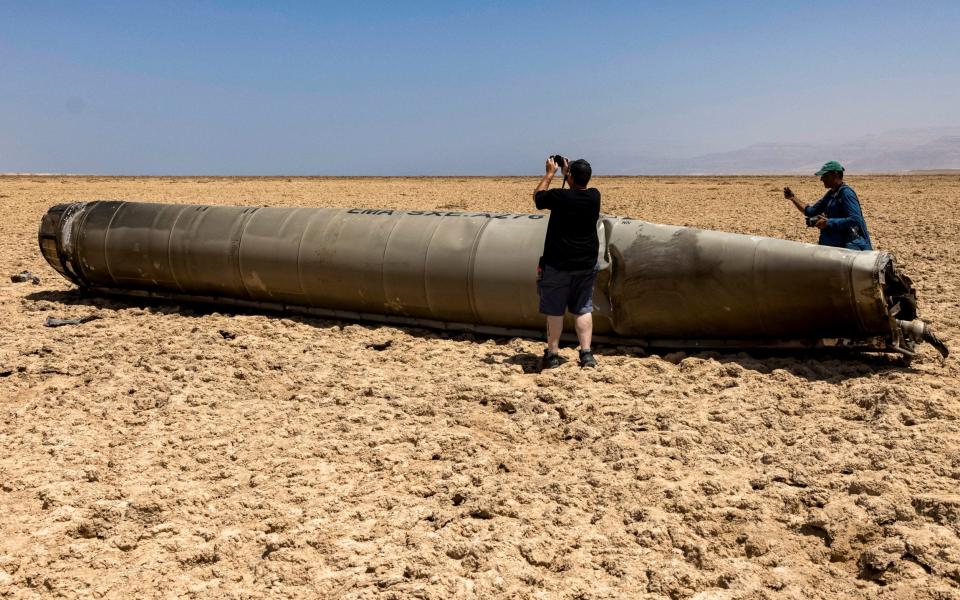Satellite images show Iran tried to cover up impact of Israeli missile strike

Iran replaced a destroyed radar installation within hours of an Israeli strike on an air base last week in an attempt to make it appear as though the damage had been minimal, it has been claimed.
Satellite images of an air base near the Natanz nuclear complex, near Tehran, show that suspected air-launched Israeli ballistic missiles damaged a Russian-made radar installation being used by Iran.
The strike is thought to have been designed to show that Iran’s missile defence systems could be successfully destroyed by Israel from a long range, effectively acting as a warning.
It came in response to an Iranian barrage of drones, missiles and rockets towards Israel on April 13.
Images of the site, first reported by The Economist on Wednesday, show Iran moved a separate radar battery to the position previously occupied by the damaged equipment shortly after the attack, in an attempt to minimise the scale of Israel’s response.
Iran appears to have replaced the first radar, a Russian-made Tombstone installation, with a different system.
It also positioned air defence weapons linked to the radar as if they were ready to fire, even though they had probably been rendered useless.
Immediately after the strike, Iran claimed it had been attacked by small Israeli drones, but that they had been intercepted and no damage had been caused.

The air base is strategically important to the Iranian regime and forms part of the protection of the Natanz complex, where it is suspected to be building nuclear weapons.
Chris Biggers, a former US intelligence official at the National Geospatial-Intelligence Agency, said that Iran had deliberately covered up the impact of the Israeli strike to suggest it had been unsuccessful.
“It’s a case of denial and deception to suggest the site is still operational,” he told The Economist.
He told The Telegraph that Iran had also moved its missile batteries away from the site in the immediate aftermath of the attack, in anticipation of a second Israeli strike.
The news comes after Iran suggested it would not respond militarily to Israel’s attack, despite claiming beforehand that it was prepared to retaliate.
Instead, the regime played down Israel’s strike in an apparent attempt to avoid escalation of the conflict into a regional war.
‘Adventurism and acts against our interests’
After claiming that Iranian facilities had been left essentially undamaged, Iran’s foreign minister said last Friday: “If Israel wants to do another adventurism and acts against the interests of Iran, our next response will be immediate and will be at the maximum level”.
World leaders, including Rishi Sunak, the Prime Minister, have called for both Israel and Iran to show restraint and avoid a full-scale war.
On Wednesday, Iran and Pakistan issued a joint statement calling on the UN Security Council to condemn Israel for the attack.
“Recognising that the irresponsible act of the Israeli regime forces was a major escalation in an already volatile region, both sides called on the UN Security Council to prevent the Israeli regime from its adventurism in the region and its illegal acts attacking its neighbours,” the two countries said.
During a recent visit to Pakistan, Ebrahim Raisi, the Iranian president, was quoted by the state news agency IRNA as warning that any further Israeli attack could result in the complete destruction of the “Zionist regime”.
Pakistan has previously called for de-escalation by “all parties”.

 Yahoo News
Yahoo News 
